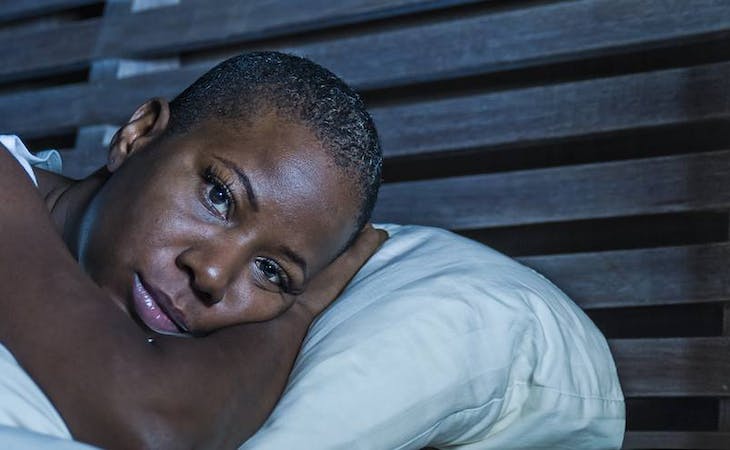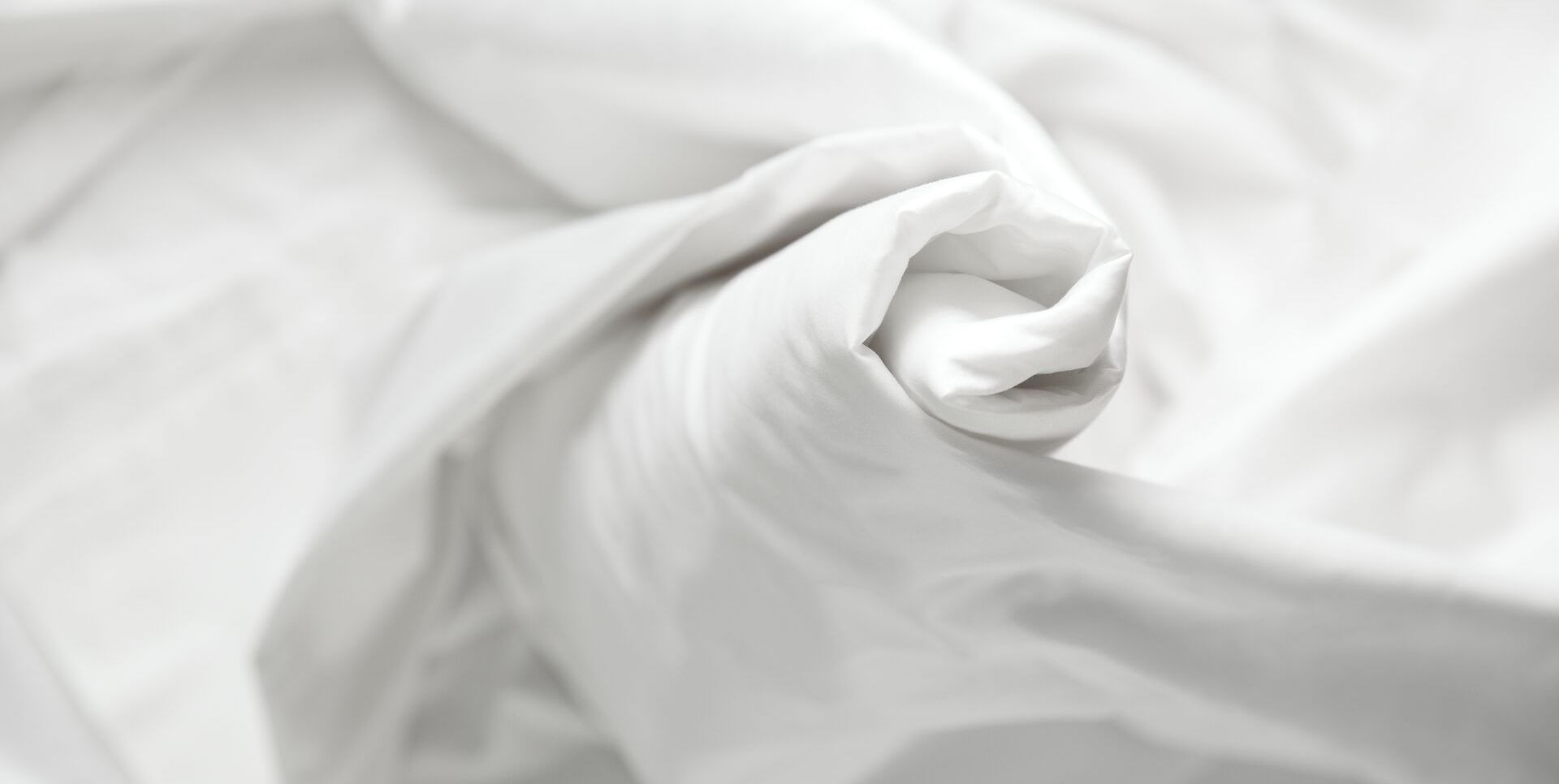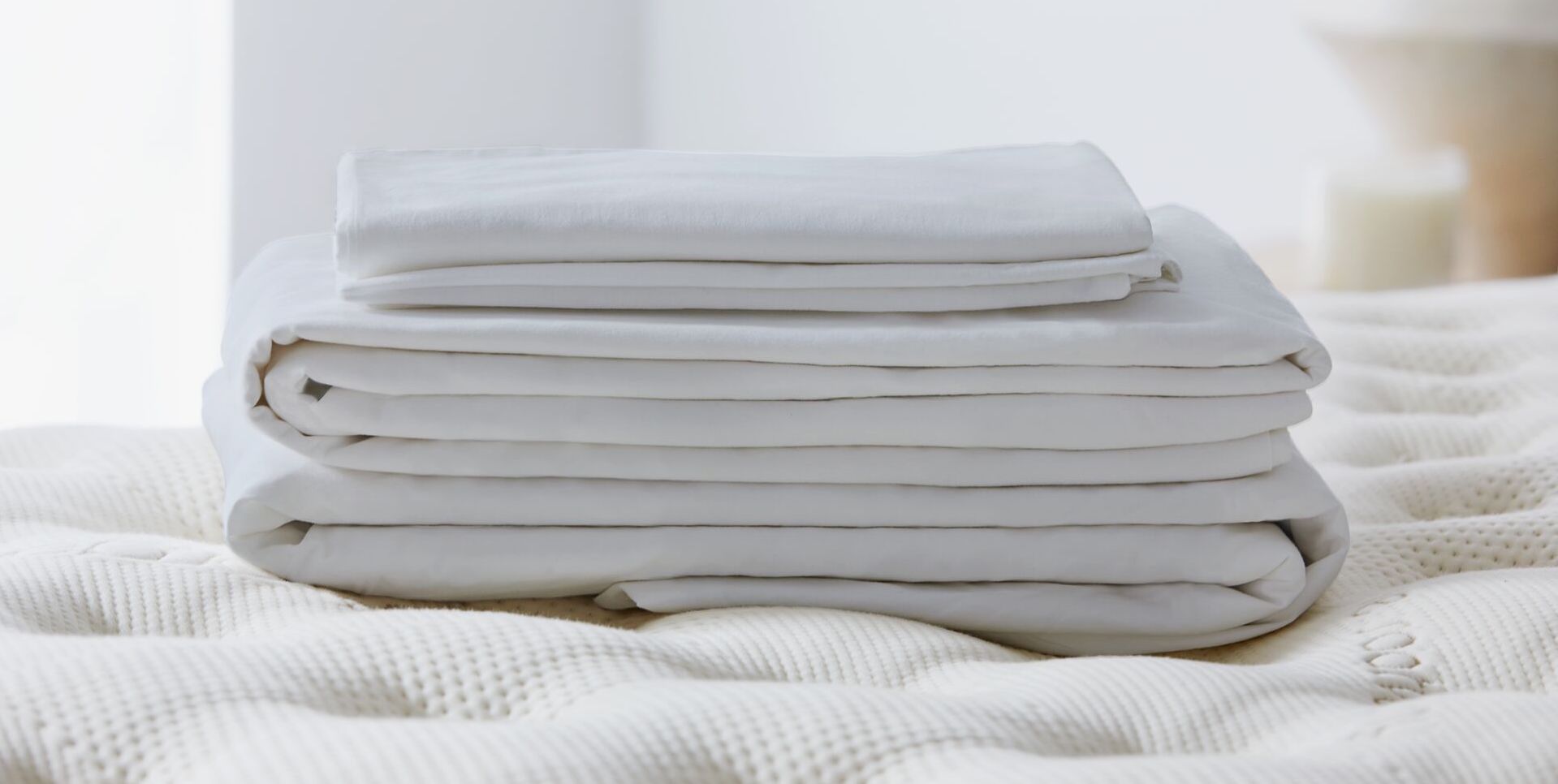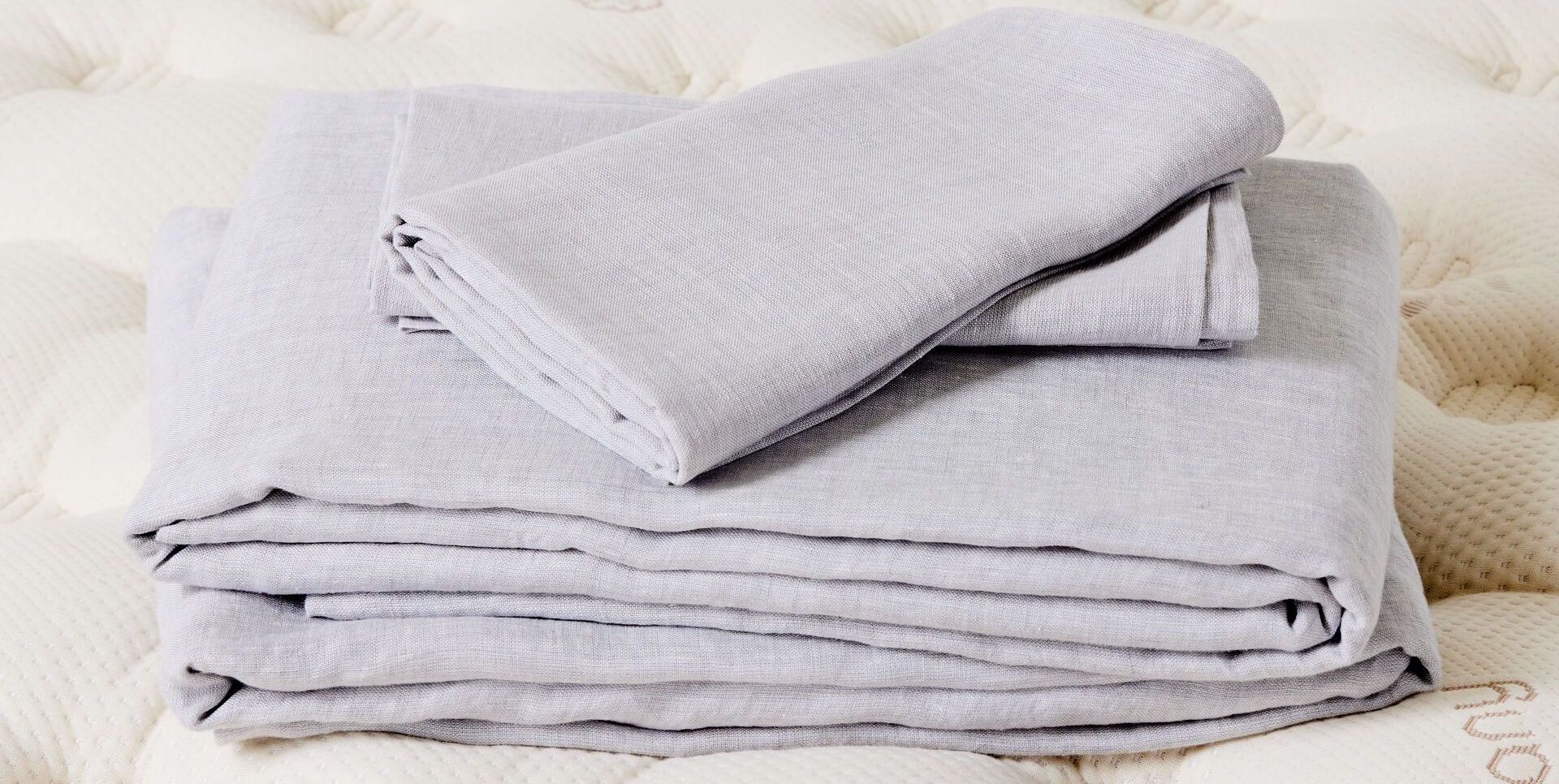Talk about a rude awakening: You sip on some chamomile tea and go to bed at a decent hour, but then you roll over wide awake at 2 a.m. and commence tossing and turning. We’ve all been there. According to a 2014 study in Nature and Science of Sleep that polled more than 28,000 respondents, difficulty falling asleep from middle-of-the-night awakenings is the most common insomnia symptom.
“The average person wakes up two to three times a night for 30 seconds to a minute,” says Michael J. Breus, PhD, clinical psychologist and fellow at the American Academy of Sleep Medicine. “This is what I call undisturbed awakenings, which are very normal. The problem is when you’re not able to fall back asleep.”
That last part is key: The most important thing is that you’re able to snooze peacefully again. Most people don’t even remember waking up, but others are bright-eyed. Why? No matter how much you meditate or journal before bed, the reason you can’t knock out like a log might have more to do with an underlying issue.
Here are common reasons you’re waking up in the middle of the night and what you can do to ensure don’t lose quality snooze time.
You’re not sticking to a regular sleep schedule
If you don’t follow a consistent sleep schedule, you’re more likely to wake up in the middle of the night and have trouble falling back asleep. In fact, a 2019 Sleep in America poll by the National Sleep Foundation shows that 52% to 56% of Americans who keep the most regular sleep schedules wake up feeling more well-rested than 34% to 38% of those who go to sleep earlier or later than their usual bedtime.
Michael Grandner, PhD, director of the Sleep and Health Research Program at the University of Arizona, says sticking to a sleep script impacts the quality of your Z’s. “If we don’t have a reliable daytime and nighttime rhythm, it can alter when our body is expecting to be awake or asleep, which may set us up for wakefulness when we don’t want it,” Grandner explains. “An irregular sleep-wake system also disrupts other rhythms in the body that can affect your sleep-wake regulations,” he adds.
The sleep Rx: Go to bed and wake up at the same time every day, even on weekends. If you tend to lose track of time at night, set an alarm to alert you when it’s time to shut down all electronics and get ready for bed. That means turning off your TV and laptop at least 90 minutes before hitting the hay. Keep your phone away from your bedroom or put it in airplane mode to avoid the endless cycle of scrolling through Instagram.
The blue light that emits from these devices activates certain areas of the brain and can cause you to have trouble falling asleep. A small study suggests that wearing blue light-blocking glasses before bed can help reduce sleep latency—the amount of time it takes you to fall asleep—and increase melatonin, the hormone that regulates your sleep-wake cycle, but it’s best to keep electronics at bay as you wind down.
You have to pee
As people age, they may experience nocturia, aka the need to urinate at night. There are a host of causes for nocturia, including having an overactive bladder, drinking too much fluid before bed, and taking medications that have a diuretic effect. Men over the age of 50 may also develop prostatic hyperplasia—prostate enlargement that can cause frequent urination.
The sleep Rx: Breus says it’s OK to get up to use the bathroom if you absolutely have to pee—but avoid turning on the lights and use night lights instead. “Going from lying in bed to a seated position to standing increases your heart rate and makes you more alert,” he says. “Turning on the lights also activates your sympathetic nervous system—your body’s fight or flight response.” He also advises against looking at the clock, as it can make you anxious about falling back asleep.
To help you relax and get your heart rate down, Breus employs the 4-7-8 breathing technique: Breathe in for four seconds, hold your breath for seven seconds, and exhale slowly for eight seconds. “If that doesn’t work for you, I recommend progressive muscle relaxation, in which you tense up and relax everything from your toes to your head,” Breus says. “And if that doesn’t do it for you, then try counting backward from 300 by multiples of three. You’ll have to think so hard about it that you’ll be out like a light.”
You’re hungry
Turns out enjoying a midnight snack might do your sleep some good after all. Breus says that most people’s blood sugar drops in the middle of the night because they are eating dinner too early and running out of fuel. This causes your cortisol levels to skyrocket, which signals to your body that you need more energy. “Each stage of sleep uses a certain amount of glucose,” he explains. “During REM (rapid eye movement) sleep, your brain actually uses more glucose than when you’re awake. During stage 4 of sleep—when your body repairs muscles and tissues and helps boost immunity—you burn just as much glucose.”
The sleep Rx: To avoid hangry sleep, Breus suggests eating a 250-calorie snack, like apple slices with almond butter or a bowl of low-sugar cereal and almond milk, anywhere between an hour to 90 minutes before going to bed. “Enjoy a snack made with 70% carbs and 30% protein,” he says. “The high-carb content releases serotonin and makes you feel more comfortable.” Another trick Breus recommends to his patients is eating a teaspoon of raw honey. Raw honey is hard to digest and keeps your blood sugar stable throughout the night. He also says drinking guava leaf tea can help prevent spikes in blood sugar.
Related: 6 late-night snacks that will help you sleep
You drink too much alcohol before bed
That second glass of red wine might be causing you to yawn now, but it can put the brakes on sleep later at night. Breus says that alcohol can interfere with your circadian rhythm—your body’s internal clock that controls sleep, metabolism, and other important functions—by suppressing the production of melatonin. Research also shows that high doses of alcohol before bed can reduce total REM sleep, which is crucial for building memory, cognitive function, and motor skills. On a normal sleep schedule, REM usually accounts for 20% to 25% of your sleep at night, but alcohol cuts it down.
The sleep Rx: “I wouldn’t tell anyone to stop drinking alcohol completely, but if you stop drinking an hour before bed and have a glass of water with each drink, you should be fine,” Breus says. Because alcohol is a diuretic, sipping H2O with each drink can help restore some fluid in your bloodstream to prevent dehydration. Dehydration not only makes your mouth and throat become dry, but it can also lead to nocturnal leg cramps, causing you to wake up in the middle of the night. Nocturnal leg cramps can make your calves, thighs, and feet feel tight.
You’re suffering from depression or anxiety
According to Breus, 75 % of insomnia is fueled by depression and anxiety. Like a domino effect, studies show that people with insomnia also have an increased risk for depression. A 2005 National Sleep Foundation survey revealed that adults diagnosed with depression were more likely to report a sleep disorder. But insomnia isn’t the only sign of depression. Many people with depression and anxiety experience excessive sleeping, also known as hypersomnia, which can mess with their circadian rhythm and make it difficult to stay asleep at night.
“Depression and sleep are complex because some people who are depressed can’t sleep at all while others just want to stay in bed all day,” Breus says. “In many cases, once depression is treated, the person is sleeping and feeling better. Sometimes that requires medication, though.”
The sleep Rx: The symptoms of depression and anxiety overlap with sleep disorders, so it’s important to consult your doctor or a psychiatrist to determine the best treatment plan for you. Your doctor will create a treatment plan that may include some form of therapy and medication, but keep in mind that treating depression takes time—so you might not feel the effects of antidepressants right away. You shouldn’t stop taking medication because you’re starting to feel better, either. Always talk to your physician before you make any changes to your treatment.
Related: A doctor’s advice for sleeping better with anxiety
You have sleep apnea
While sleep apnea—a sleep disorder that causes a person to repeatedly stop breathing at night—is more common in men, it can affect women too, especially those who are going through menopause. “A lot of women complain about insomnia, but in fact, over 60% of them have sleep apnea,” Breus says. “Women don’t like to talk about the fact that they snore. The ratio for men to women who have sleep apnea is usually 2:1, but with menopause, that ratio looks more like 1:1.”
Women in menopause have lower estrogen and progesterone levels, increasing their risk for heart disease, diabetes, and other conditions—all of which are risk factors for sleep apnea. These hormones are also responsible for maintaining muscle tone in the throat. “These hormonal imbalances cause weight gain in women, which can obstruct the upper airway for breathing,” Breus explains. The symptoms of sleep apnea include loud snoring, gasping for air during sleep, waking up with a dry mouth, difficulty staying asleep, and excessive sleepiness during the day.
The sleep Rx: If you’re experiencing any of these symptoms and suspect that you have sleep apnea, talk to your doctor or a sleep specialist about getting tested. These tests monitor your heart rate, oxygen level, and breathing patterns during sleep and can be done at home or a sleep center. The most common way to treat sleep apnea is by using a CPAP machine. A CPAP machine delivers continuous air pressure through a mask while you sleep to keep your upper airways open.
You have a thyroid disorder
Speaking of hormone imbalances, having an overactive or underactive thyroid can affect your sleep rhythm. Hyperthyroidism, which is an overactive thyroid, happens when your gland produces too much thyroid hormone. This condition can increase your heart rate and make you feel more alert at night. Other hyperthyroidism symptoms include feeling anxious, having high blood pressure, and feeling overheated. On the other hand, hypothyroidism—or an underactive thyroid—means your gland doesn’t produce enough thyroid hormone.
As a result, you might have extreme fatigue and brain fog and experience weight gain due to a slower metabolism. Research also shows that hypothyroidism increases your risk for sleep apnea. But proving that a thyroid disorder is the cause of your sleep issues can be difficult because the symptoms overlap with other conditions, so talk to your doctor about getting tested.
The sleep Rx: Your doctor might run a TSH, T3, or T4 test to determine how much thyroid hormone your gland produces. A high TSH level often indicates that you have hypothyroidism and a low TSH level can mean hyperthyroidism. Furthermore, a high blood level of T4 could signal hyperthyroidism and a low level of T4 could be a sign of hypothyroidism. But in some cases, high or low T4 levels doesn’t necessarily mean you have a thyroid issue.
Being pregnant or taking contraceptives can alter your thyroid hormone levels. So if your doctor suspects you have hyperthyroidism even though your T4 levels are normal, they might administer a T3 test to confirm a diagnosis. Luckily, managing a thyroid condition with medication and the help of your physician can improve your sleep.
Related: 7 things you do while you sleep that could signal a health issue
You have a nutrition deficiency
“There are a number of studies that link nutritional problems with sleep difficulties,” Grandner says. “Low iron can cause movement-related issues. Some studies have also shown that sleep disturbances are sometimes linked to low levels of zinc and vitamin D.” Having low vitamin D, in particular, can increase your risk for sleep apnea and insulin resistance. A 2019 study in the Journal of Clinical Sleep Medicine also shows that a vitamin B12 deficiency could be the cause of excessive daytime sleepiness.
Moreover, a 2018 study in Sleep Medicine suggests that an iron deficiency is associated with restless legs syndrome (RLS), a condition that causes an uncontrollable urge to move your legs. People with RLS may experience leg twitching or a crawling sensation in the legs.
The sleep Rx: Carolyn Dean, MD, sleep and nutrition expert and author of The Magnesium Miracle, says sugar depletes magnesium, a key sleep mineral that regulates melatonin—so limit your sugar intake, especially before bed. “Sugar causes magnesium deficiency because 28 molecules of magnesium are required to metabolize one molecule of sucrose and 56 molecules are required to metabolize one molecule of fructose,” she explains. “Deplete your magnesium stores and you will not sleep through the night and not feel refreshed from sleep.”
As for vitamin D, incorporating more vitamin D-rich foods, like salmon, beef, eggs (don’t omit the yolk), mushrooms, dairy, and fortified orange juice and cereals, into your diet can help ensure you’re getting enough of this important nutrient. These foods are also good sources of iron and vitamin B12. FYI, the National Institutes of Health (NIH) recommends that adults between 19 and 70 years old get at least 600 IU of vitamin D daily and adults 71 years and older 800 IU. If you’re pregnant or breastfeeding, you should aim for 600 IU daily. In addition to adding more D-dense foods to your meals, you can also talk to your doctor about taking a vitamin D supplement.
You’re overheating
Breus says that your core body temperature naturally dips as you fall asleep. These cooler temperatures signal to your body that it’s time to power down and help you sleep more soundly. “If your bedroom is too hot, it can affect the quantity and quality of your sleep and wake you up in the middle of the night,” Dean adds. That’s why it’s ideal to keep the temperature in your bedroom somewhere between 60 and 67 degrees, the National Sleep Foundation reports.
During REM sleep, your body’s temperature-regulating control center shuts off, allowing your internal thermometer to be determined by the Fahrenheit in your room. If you’re piling on comforters and raising the heat in your room, chances are you’ll wake up in the middle of the night tangled in sweaty sheets. But sometimes running hot is unavoidable: People who are going through menopause, or have diabetes or hyperthyroidism, tend to overheat and suffer from night sweats.
The sleep Rx: Avoid waking up drenched at night by using cooling bed sheets. “For bedsheets, I usually recommend all cotton,” Breus advises. “It really does the best, certainly better than many of the fabrics out there.” Other natural fabrics like bamboo and linen are great options too. “For people with night sweats, I like Cool-Jams—they’re a type of moisture-wicking PJs—and the ChiliPad, a cooling mattress pad that allows you to adjust temperature throughout the night,” Breus says. Dean also says that on warm nights, you can cool a room with a ceiling fan or a fan placed in front of an open window.
Your circadian rhythm is your body’s internal clock. Here’s how to ensure your circadian rhythm is ticking in top shape.







